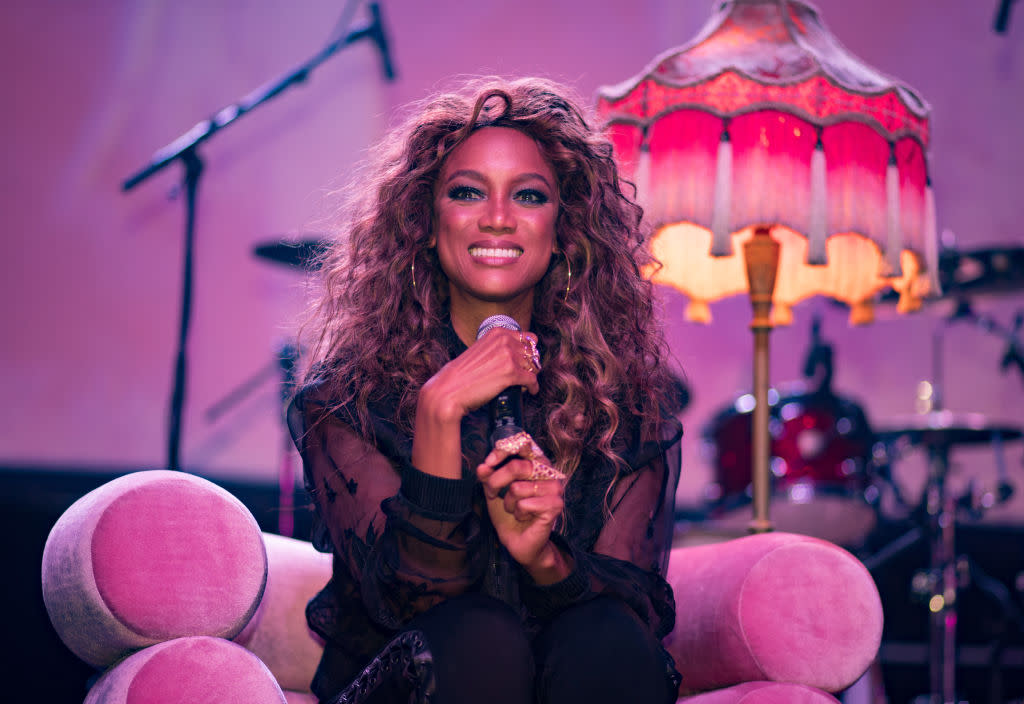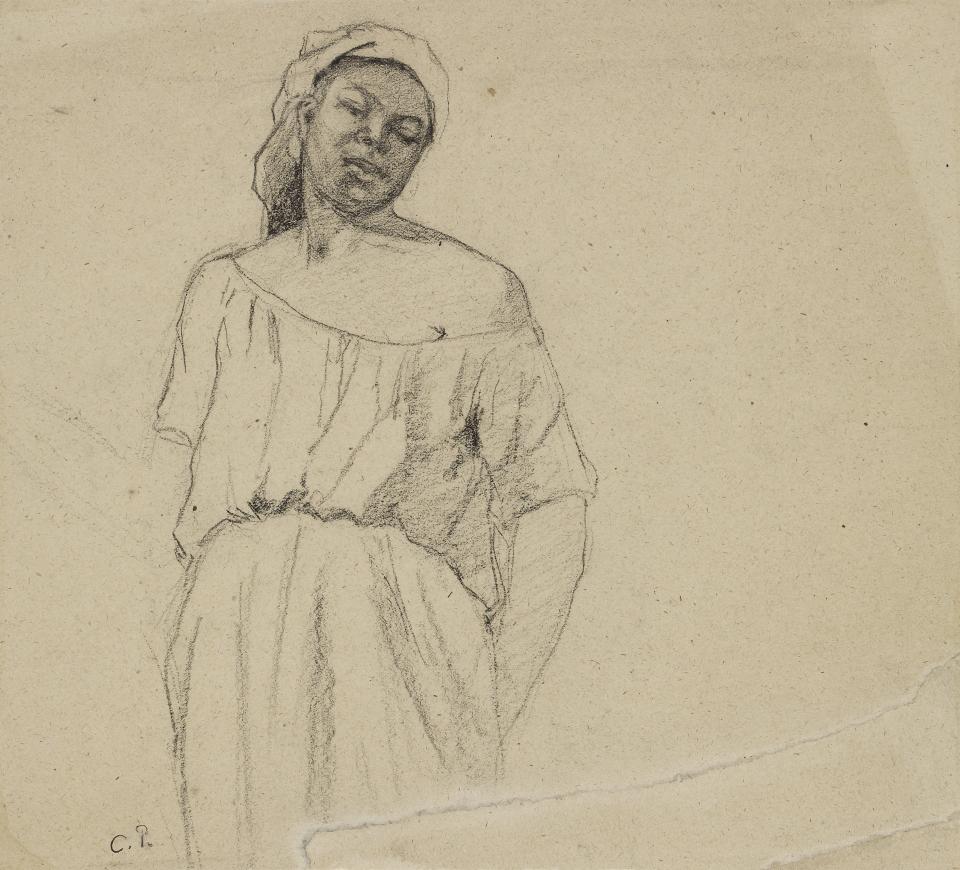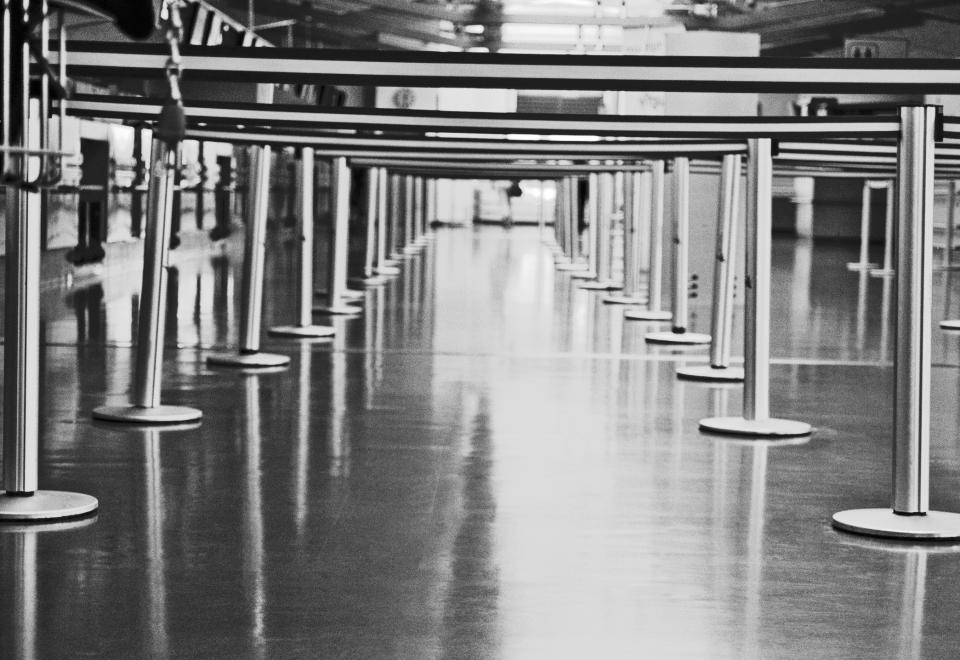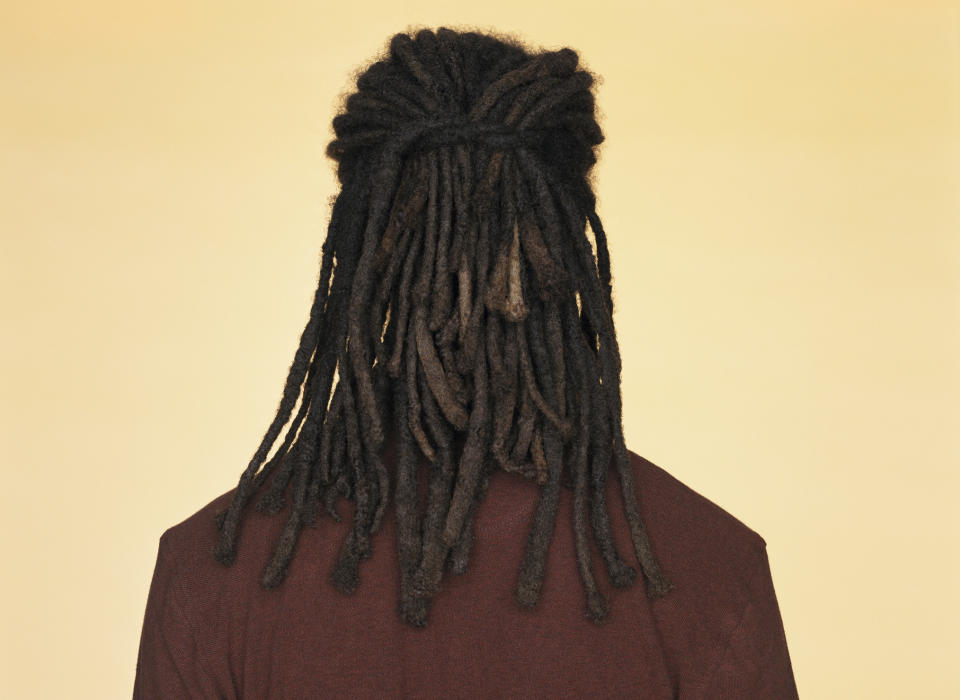Tyra Banks: My hair almost derailed my career

In a recent interview with W magazine, Tyra Banks, who made history as the first black woman to receive a contract with Victoria’s Secret, discussed her experience as a black model trying to navigate an overwhelmingly white industry. She revealed how her career almost didn’t happen.
“I was sent home the first day because the hairdresser didn’t know what to do with my African-American hair, so it looked crazy,” recalled Banks. “Then a year later, I finally begged my agent to get them to give me another chance, and I had my hairdresser come to my apartment in Union Square [in New York] and wash, blow-dry, and flat-iron my hair. And then I wrapped it and put a scarf on until the next day, when I was on my way to Victoria’s Secret and stepped out of a cab and whooshed it off my head, walked in, got my makeup done, didn’t let the hair people touch me, went to the bathroom, redid my face, put on extra lip gloss, and walked on that set. Cut to a 10-year contract.”

Unfortunately, the fashion industry is filled with stories of designers being unprepared for the complexities of hair and makeup for models of color. Banks’s experience, though it happened decades ago, is illustrative of the ways policies and procedures have discriminated against black aesthetics throughout history, starting as early as the Edict of Good Government, or “Tignon Law,” implemented in New Orleans in 1786. This law mandated that women of color must cover their hair in public as a reminder of their slave status. It was created because black women’s hair was often styled so elaborately that it drew the attention of white men and the jealousy of white women. However, instead of its intended effect, black women’s scarves were often made of such beautiful jewels and fabrics that white women began to do the same.
Though these antiblack messages about beauty standards have become more insidious and not as much on the surface, similar discrimination continues to this day. That same Tignon Law rhetoric — that women of African descent are forced to cover up their hair to prevent distraction — is currently used in schools and the workplace. Below are five examples of how institutional racism leads to black women’s hair being policed in the new millennium.

Hair searches during airport security screening
Transportation Security Administration (TSA) policies don’t explicitly state what warrants a hair search. According to its site, “A pat-down may include inspection of the head, neck, arms, torso, legs, and feet. This includes head coverings and sensitive areas such as breasts, groin, and the buttocks. You may be required to adjust clothing during the pat-down.” But that’s it.
Prior to a civil rights complaint filed by the ACLU of Northern California against the TSA, it was common practice for TSA agents to thoroughly search and examine black hair during security checks. The complaint, which featured several black women who had undergone the humiliating experience, explicitly features the name of Malaika Singleton, a neuroscientist who at the time was employed by the California State Senate.
Despite the fact that the U.S. Constitution prohibits unreasonable search and seizure, Singleton — and countless other black women — had her hair squeezed and patted from top to bottom. In January 2015, TSA’s Office of Civil Rights and Liberties decided to incorporate special training on pat-downs as they relate to black passengers.
More than a year later, writer Taja Lindley was still dealing with this emotionally taxing procedure. “As usual, TSA needed to check my hair after scanning. I respectfully said no. When the TSA agent told me it was required, I asked for her supervisor. When her supervisor arrived, she said I had two options: 1) get my hair patted down where I was standing, or 2) get my hair patted down in a private room. My heart was pounding. My ears were hot. I was steaming mad. It took everything I had to keep my composure,” said Lindley. Unfortunately, this practice continues today.

School dress codes that exclude or forbid black hairstyles
In May 2017, 15-year-old twins Mya and Deanna Cook were kicked off a sports team, received two weeks of in-school suspension, and were banned from attending their prom. Their offense? Wearing chest-length box braids to school. According to the dress code at Mystic Valley Regional Charter School in Malden, Mass., they were in violation of the clause that banned anything “artificial or unnatural” in their hair.
That same year, 17-year-old Jenesis Johnson, who had been wearing her hair in an Afro intermittently since the seventh grade, was told by the assistant principal of North Florida Christian School in Tallahassee that her hair was “extreme and faddish,” “out of control,” and “all over the place.”
These regulations have considerable effects on children’s sense of self. According to Johnson, being told her hair was against school rules was painful. “It hurts me. It’s hurting me. For my people behind me, the younger ones, they’re going to have hair like me. Why can’t they wear their natural hair?” she commented during an interview with WCTV of Thomasville, Ga.
A quick Google search will reveal many instances during the past decade of children of color being punished for their racial and cultural hair choices. These experiences are in line with higher rates of expulsion and suspension for students of color in response to minor offenses. The rates are even worse in charter schools.

Hiring discrimination based on hair
African-Americans get 36 percent fewer callbacks than white Americans who have equal qualifications, according to a 2017 study by researchers at Northwestern University. But getting in the door is just the first step. Imagine being granted an interview based on your qualifications and told that your natural hair could prevent you from getting the job.
Tyree Bayan was told during an interview that his dreadlocks went against company policy at Independence, Mo.’s Cool Crest Family Fun Center. Its marketing vice president later blamed length, not texture.
For Bayan, it wasn’t worth it. “I didn’t really understand it,” he said. “I have never experienced anything like that. My hair is something that’s a part of my ancestry. It being something that a company doesn’t want, I was just really sad about it.” This experience could have easily caused him to internalize negative messages about his hair.

Workplace harassment about hairstyles
Being hired doesn’t signify the end of natural-hair discrimination. There are plenty of accounts of employers allegedly making unjust comments about black hair. While there are no explicit definitions of what “professional hair” is, it isn’t uncommon for dress code standards to prohibit messy or distracting styles — a term that is often used to label dreadlocks and other hairstyles commonly worn by black women and men.
Consequently, many African-Americans elect to adopt mainstream white beauty standards by getting extensions or using chemicals and heat to straighten their hair. Unfortunately, this does nothing to offset the emotional labor and mental strain of co-workers asking to touch black co-workers or have them explain the realities of black hair.
In 2017, the Perception Institute conducted a “Good Hair” study to track implicit associations of black women based on their hair. The study found that black women face anxiety related to their hair and that white women on average rate textured hair as less beautiful.
One example of the pressure to alter black hair while employed is the story of Rhonda Lee, a former meteorologist at KTBS-TV in Shreveport, La., who claims to have been fired after she responded to racist comments about her natural hair.
The U.S. Equal Employment Opportunity Commission is currently petitioning the U.S. Supreme Court to weigh in on how bias leads to beliefs that black natural hair is unprofessional.

Military regulations that discriminate against natural hair
Sadly, discrimination against natural hair is so pervasive that it reared its head in the armed forces. After years of regulations designed for unrealistic uniformity, the Army last year lifted its ban on dreadlocks and other natural hairstyles. The change offered more alternatives to black women who are uninterested in chemical straightening, which may seem like the easier option but could potentially lead to health complications, like hair loss and possibly fibroids, in the long run.
In a Facebook video, Staff Sgt. Chaunsey Logan of Fort Stewart, Ga., expressed the importance of this modification to her career after almost having to separate from the military after 15 years for refusal to cut her hair. “I was constantly worried if someone was going to bring this up again. Or when I PCS [permanent change of station], would I have to go through this with another command? Lo and behold, I get this news today. On this beautiful southeast Georgia Thursday, that dark cloud is gone!” Logan expressed.
Hopefully, the policing of black hair will end. Until then, it is important to continue to celebrate the diversity of forms in which beauty can be seen.
Read more from Yahoo Lifestyle:
Teen girl speaks out after her wig is ripped off in horrific bullying incident
Woman claims her Banana Republic manager said braids too ‘urban’ and ‘unkempt’ for store’s image
Mom deals with ‘unintentional racism’ after daughter asks for braids to look like black friend
Follow us on Instagram, Facebook, and Twitter for nonstop inspiration delivered fresh to your feed, every day.
